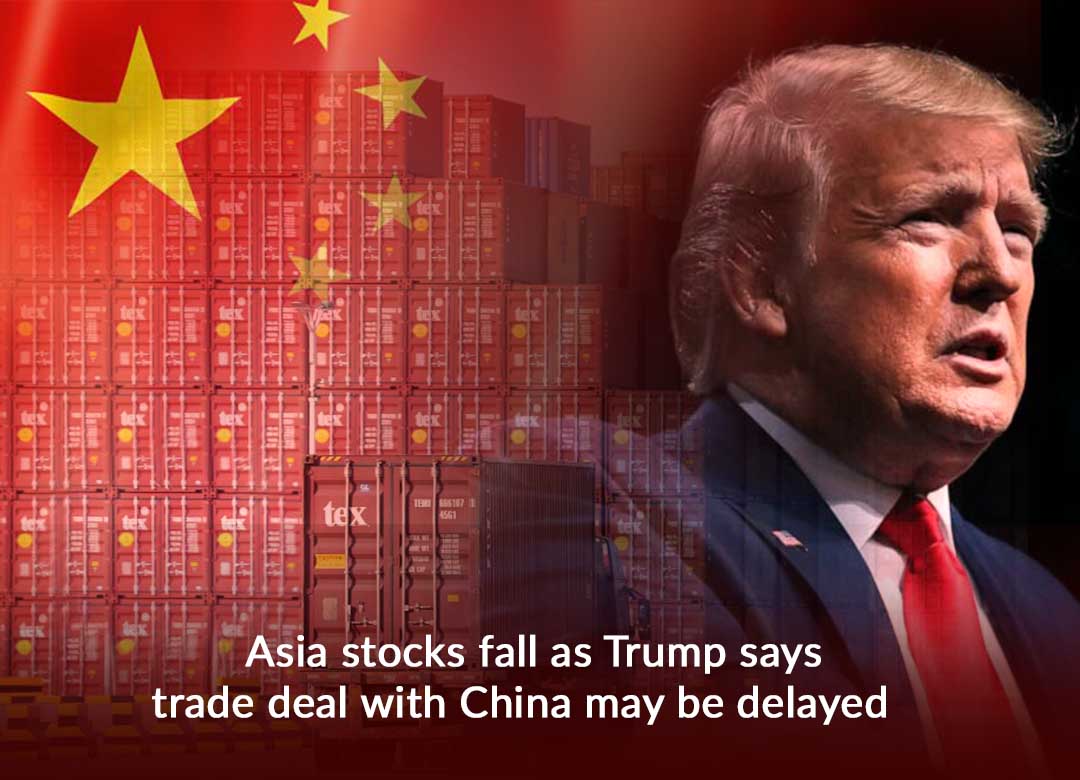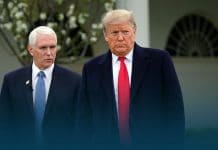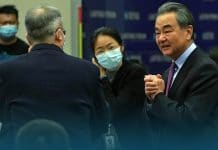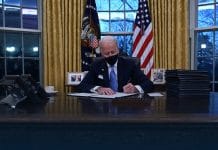On Wednesday, Asian stocks mostly slipped after United States President Donald Trump said that he might postpone a trade agreement with China till after the U.S. presidential election 2020. On the other side, shares in Australia led losses among the major markets of the region, with ASX 200/S&P falling more 1.58% to close at around 6,606.50 as shares of key miner BHP rushed 2.49%. According to statistics from the Australian Bureau of Statistics, the economy of Australia grew about 1.7% based on seasonally adjusted year-on-year in the quarter of September.
The chief economist for ABS, Bruce Hockman, stated that the economy continued to rise, whereas the growth rate remains well under the long-run average. In Japan, the Nikkei 225 plummeted around 1.05% to close at about 23,135.23 as index’s shares heavy-duty Fast Retailing fell almost 5.21%. Also, the Topix index plunged 0.2% to end its trading at approximately 1,703.27. On the day, mainland Chinese stock showed a mixed behavior with the Shanghai composite fell 0.23% to around 2,878.12, whereas the Shenzhen component was up about 0.31% to around 9,687.95. Also, the Shenzhen composite rises 0.199% to almost 1,608.52. Hang Seng index of Hong Kong declined 1.16% as of its last hour of trading that day.
Kospi of South Korea ended it that trading day 0.73% lesser at around 2,068.89, as chip manufacturer SK Hynix’s shares fell 1.27% – following rapid declines of Micron, Advanced Micro Devices and Nvidia on Wall Street. In general, the MSCI Asia index traded about 0.84% lower.
Company-wise Index Table
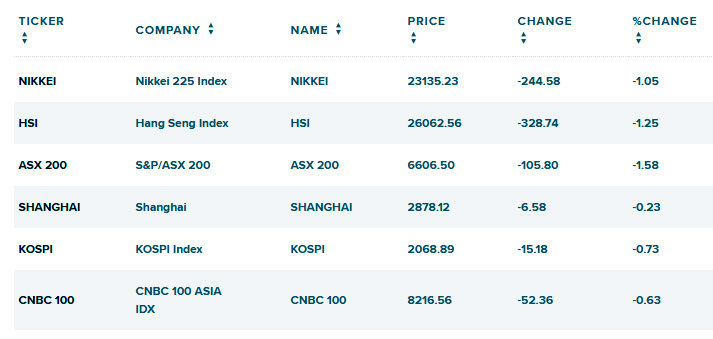
Investors have been predicted a trade deal “phase one” between Beijing and Washington to be linked, ahead of the deeply watched date of December 15, when added tariffs on exports of China to the United States set to kick in. However, Donald Trump told reporters that in some ways, he likes the waiting idea until after the 2020 presidential election for the China deal, but on the other side, they want to make an agreement now, and the U.S. will see whether or not the pact going to the right. When reporters questioned him, if he had a deadline for the agreement, he said: I have no specific deadline.
Asian equities director at Aberdeen Standard Investments, James Thom, told CNBC that expectantly it’s just negotiating strategies and posturing in the build-up to the deadline of December 15, and they will see some type of resolution well before the twelve-month timeline. Thom said, even if tariffs do increase come December 15, who knows about when that will last, there’s always the chance to roll that back. Seema Shah of Principal Global Investors dubbed the latest comments of Trump as a “trick to recover the upper hand in these discussions.
Markets Need to Learn from Past Experience
Just like the memory of muscle, trade markets required to learn from previous experience that there’s a little to gain from responding too quickly to trade-related comments of Trump in the run-up to an agreement. Shah further says, in the last eighteen months, he has obviously established that this “up and down” is his ideal form of negotiations. Fox News stated that the United States still plans on making progress with scheduled December 15 tariffs on goods of China aside from the latest efforts at a ‘phase one’ trade pact.
Instantaneous stateside stocks fell amid the uncertainty about trade. The Dow Jones Industrial Average plunged 280.23 points to close at around 27,502.81, whereas the S&P 500 fell 0.7% to end its trading day at about 3,093.20. The Nasdaq Composite closed almost 0.6% at around 8,520.64.
Read Also: China wishes the removal of tariffs in phase one trade deal with the United States

